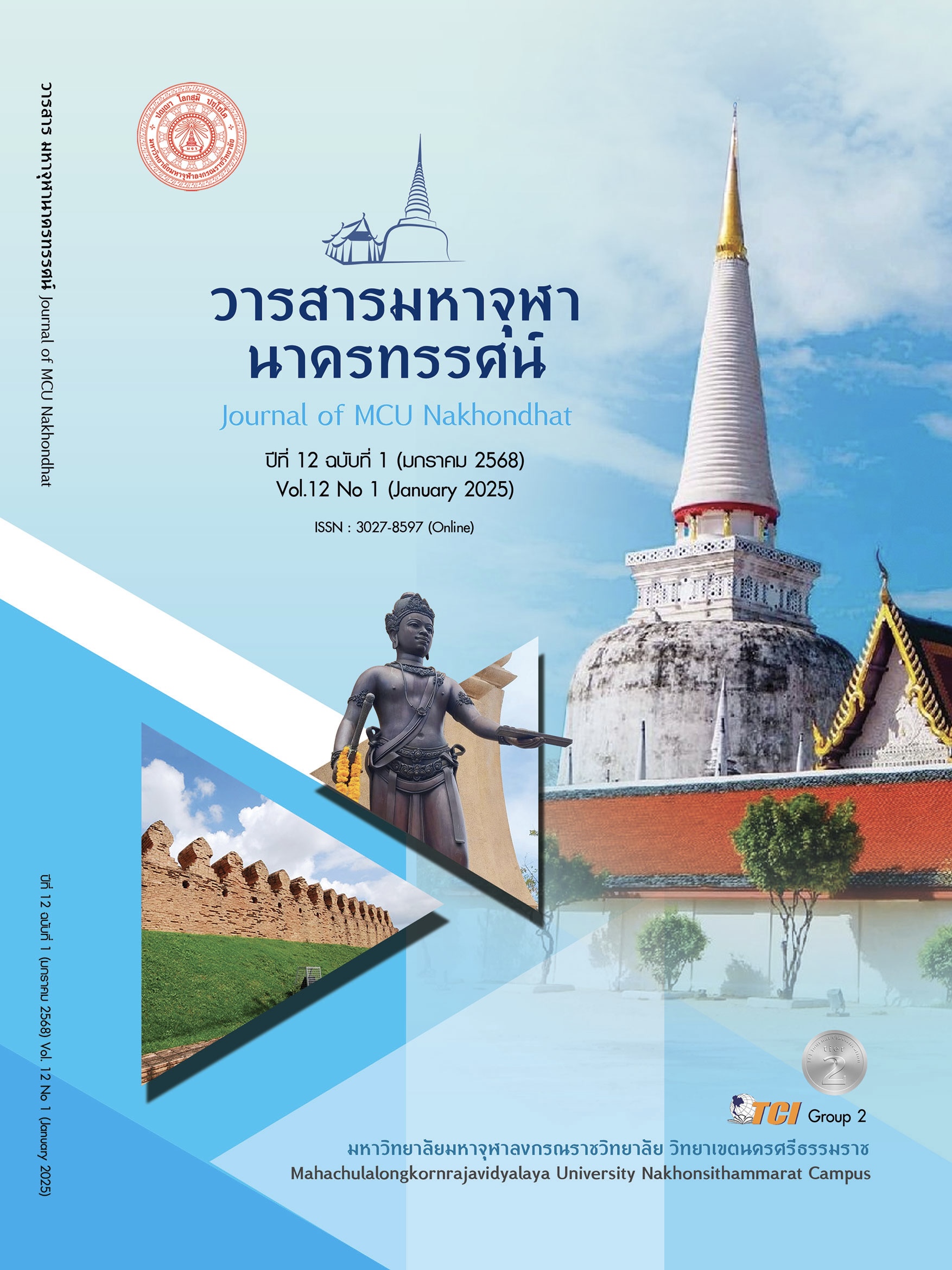HUMAN CAPITAL DEVELOPMENT AND 5.0 ERA MARKETING
Main Article Content
Abstract
This article presents concepts related to human capital and strategies for human capital development in business organizations, particularly in the context of Marketing 5.0, where technology plays a crucial role in enhancing organizational capabilities and competitiveness. Human capital is considered a key resource that contributes to adding value and productivity within organizations and supports long-term economic sustainability. Modern marketing emphasizes the use of digital technology to improve efficiency in reaching customers, which requires employees with advanced digital and information skills. Organizations must invest in developing employees' knowledge and skills to meet the rapidly changing customer demands in the 5.0 era. Human capital development strategies within organizations include training, further education, coaching, job rotation, and participation in professional activities, all aimed at enhancing employees' capabilities and boosting organizational potential to adapt to market changes. Human capital also connects with other forms of capital, such as structural capital, social capital, and intellectual capital, which collectively support organizational operations effectively. The new insight from this article is the integration of human capital and digital technology in creating sustainable strategies. Organizations should integrate tangible resources, such as financial and structural capital, with intangible resources, like human and intellectual capital. Investing in human capital to enhance employees' potential through skill development and creating a learning and innovation-friendly environment is crucial for organizations aiming to strengthen sustainability and competitive advantage.
Article Details

This work is licensed under a Creative Commons Attribution-NonCommercial-NoDerivatives 4.0 International License.
References
จำเนียร จวงตระกูล. (2565). การพัฒนาทุนมนุษย์: กลยุทธ์ที่จำเป็นและสำคัญยิ่งเพื่อการพัฒนาธุรกิจอย่างยั่งยืนเพื่อการพัฒนาธุรกิจอย่างยั่งยืน. กรุงเทพมหานคร: บริษัทศูนย์กฎหมายธุรกิจอินเตอร์เนชั่นแนล จำกัด.
วธุกา ปากแก้ว และบุษกรณ์ ลีเจ้ยวะระ. (2562). กลยุทธ์ทางการตลาดในการเพิ่มยอดขายผลิตภัณฑ์แปรรูปจากผ้าขาวม้าแบรนด์ Ya DE Ra ผ่านช่องทางออนไลน์. ใน การประชุมวิชาการทางธุรกิจและนวัตกรรมทางการจัดการระดับชาติ. มหาวิทยาลัยขอนแก่น.
สมคิด บางโม. (2553). การเป็นผู้ประกอบการ. (พิมพ์ครั้งที่ 5). กรุงเทพมหานคร: สำนักพิมพ์ เอส เค บุ๊คส์.
Boyte-White, C. (2022). How to Calculate Return on Assets (ROA), With Examples. Retrieved October 25, 2024 from https://www.investopedia.com/ask/answers/031215/what-formula-calculating-return-assets-roa.asp
Ciemleja, G. & Lace, N. (2011). The model of sustainable performance of small and medium-sized enterprise. Inzinerine Ekonomika-Engineering Economics, 22(5), 501–509.
Ellett, J. (2012). The CMO manifesto: A 100-day action plan for marketing change agents. CreateSpace Independent Publishing Platform. Retrieved November 15, 2024, from https://th.globallinker.com/bizforum/article/รู้จัก-marketing-5-0-ปรับกลยุทธ์ต่อยอดทางธุรกิจ/26111
Sergey, N. G. et al. (2014). Technological Capital: A Criterion of Innovative Development and an Object of Transfer in the Modern Economy. Elsevier Journal Finder, 20(2014), 56-61
Kotler, P. (2021). Marketing 5.00. (1st ed.). Bangkok: Nation Books.
Kapicka, M. (2012). How important is technology capital for the United States. American Economic Journal: Macroeconomics, 4(2), 218-248.
Kenton, W. & Sonnenshein, M. (2020). Role of Organizational Psychology in Dealing with Human Resources and the Performance of the Organizations. Retrieved May 25, 2021, from https://www.investopedia.com/terms/h/humancapital.asp
Kucharcikova, A. (2011). Human Capital-Definitions and Approaches. Human Resources Management & Ergonomics, 5(2), 60-70.
Martínez-Torres, M. R. (2006). A procedure to design a structural and measurement model of intellectual capital: An exploratory study. Information & Management, 43(5), 617-626.
Monica, P. D. & Darma, G. S. (2022). Digital marketing strategy for Balinese handicrafts facing the metaverse era. Channel Jurnal Komunikasi, 10(1), 73-84
Noe, R. A. (2019). Employee training and development. (8th ed.). McGraw-Hill Education. Retrieved November 15, 2024, from https://learn.mheducation.com/noe_employment_training.html
Sen, A. (1999). Development as freedom. Oxford University Press. Retrieved November 15, 2024, from http://www.c3l.uni-oldenburg.de/cde/OMDE625/Sen/Sen-intro.pdf


